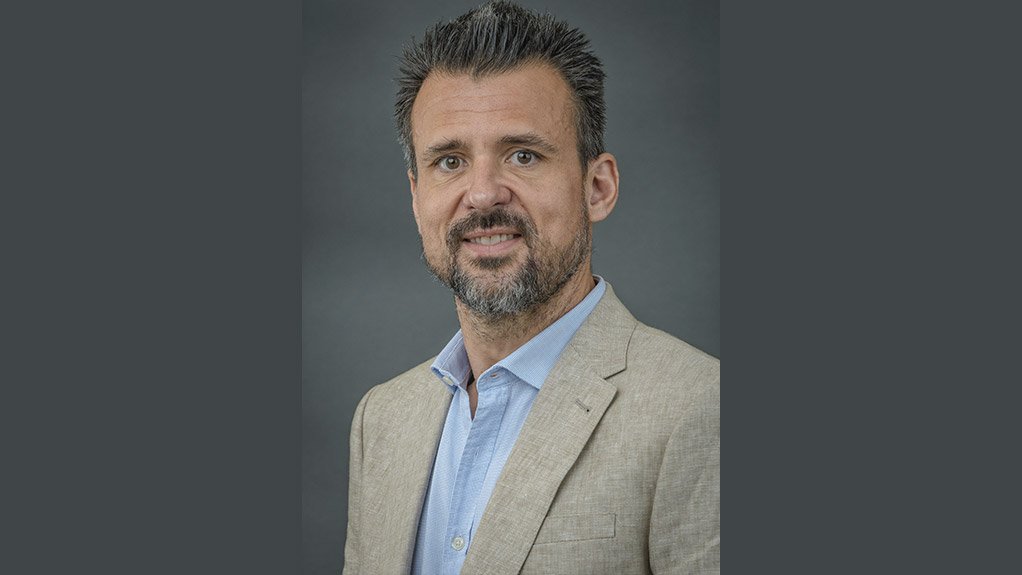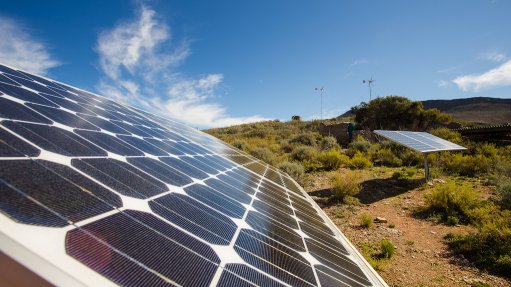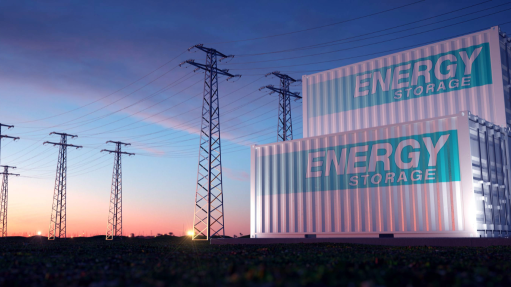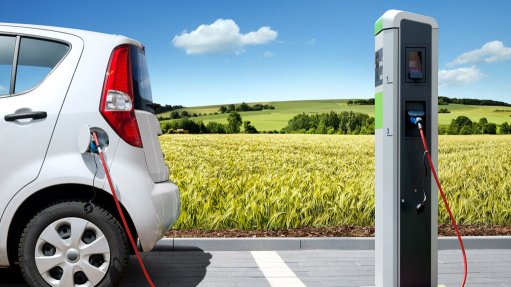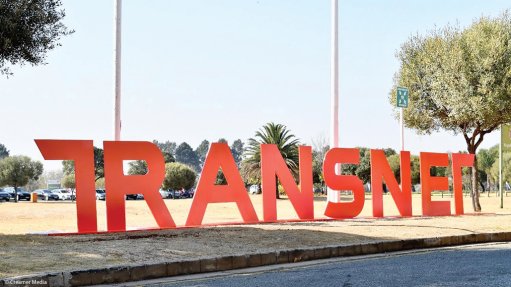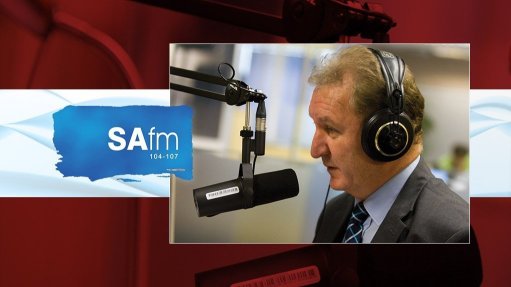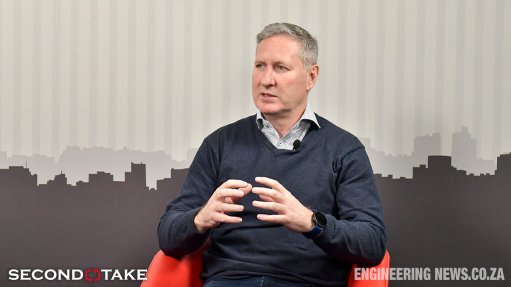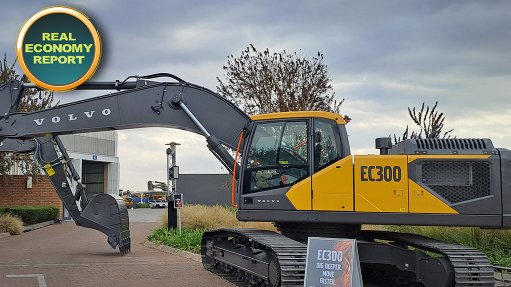Driving green strategies in logistics processes
This article has been supplied.
By Clement Blanc, CEO of DHL Global Forwarding, Sub-Saharan Africa
The world is already witnessing the catastrophic effects of climate change and global warming. Consequently, eco-conscious consumers and government regulations are increasing pressure on businesses to adopt greener, more sustainable practices across the board. And that includes logistics.
Transport and logistics are essential for the global economy, but they are major sources of greenhouse gas (GHG) emissions. This is partly due to the growing demand for goods and services that require long-distance transportation. Transporting billions of tons of cargo using vehicles powered mainly by fossil fuels presents a formidable challenge to meeting climate goals.
However, meeting the challenge isn’t just about lowering fossil fuel dependence – reducing the environmental impact requires a holistic approach to various activities in the process chain.
How to strengthen sustainability
Sustainable logistics is critical to achieving a lower ecological footprint, but companies can take several steps to accomplish this. Some changes can be made swiftly and relatively easily, while others require more time and exploration. Each of these steps is important to achieving Net Zero. Here are four tips for some quick wins:
Plan for a green supply chain
Waste is the enemy of efficiency. That means it’s both bad news for the environment and the company’s bottom line. One way to reduce its impact is by route optimisation. As routing requirements become more complex, route optimisation tools can reduce the time and distance to each destination. This saves fuel costs, reduces overtime costs, and lowers emissions. Training delivery drivers in eco-driving – the energy-efficient use of vehicles – is another easy way to move closer to a green supply chain.
Reduce failed deliveries
Optimising the last-mile delivery journey is one thing, but a failed delivery is even more wasteful, causing emissions and costs to shoot up. Businesses can mitigate this by offering a range of delivery options, including a “leave with neighbour” option, delivery to parcel lockers, or on-demand delivery.
Order tracking is another great way to reduce failed deliveries and improve the customer experience. The same tracking technology can automatically send customers notifications of the delivery day and time, ensuring that they’ll be there to receive their packages.
Introduce carbon insetting
Carbon insetting is a relatively new idea and a version of the more widely known carbon offsetting. It involves reducing a business’s carbon footprint outside its direct influence but within its supply chain. To achieve this, organisations collaborate with partners and suppliers to introduce sustainable strategies and practices. Part of this is the usage of sustainable fuels such as sustainable aviation or sustainable marine fuels.
Embrace biofuels
Decarbonisation efforts in the transport industry have gained increasing traction over the past years, much of it supported by sustainable fuels such as biofuels and eFuels. Biofuels are produced from biomass, which is organic waste such as used cooking oil, plant material, or animal waste. Although biofuels release carbon dioxide when combusted, they only release the exact amount of CO2 that the biomass had captured during its lifecycle. This makes biofuels carbon neutral.
These fuels are readily available and can be “dropped in” to existing diesel engines that will operate normally, which means they will play a key role in the next 10 years. However, biofuel infrastructure is only available in a few locations worldwide, making it difficult for forwarders and shippers to engage beyond pilot projects. In other words, it requires further development.
Green logistics in action
Green logistics, or sustainable logistics, has moved beyond buzzword status to become a business imperative that minimises logistics activities’ environmental impact and carbon footprint. As an early adopter, DHL became the first logistics company in 2008 to commit to a measurable carbon efficiency target. It pledged to improve carbon efficiency by 30% (versus 2007) by 2021 – a goal achieved four years ahead of schedule.
DHL’s next sustainability target is to electrify 60 percent of its last-mile fleet by 2030. This forms part of DHL’s mid-term sustainability roadmap, which supports the company’s global status mandate of being an industry leader in reducing its carbon footprint by setting the highest social and governance standards.
The sustainability commitment also extends to our partnerships. Testimony to this is that DHL is a founding and logistics partner of the ABB FIA Formula E World Championship, the world’s first-ever net zero carbon motorsport. DHL supports the Championship by handling the logistics requirements of all race events.
A recent milestone was delivering the first-ever Formula E event both in Cape Town, South Africa, and sub-Saharan Africa.
Using biofuels for all road and sea freight, the logistics company will cover over 89,000 km this racing season alone – moving 415 tons of valuable freight per race to bring the excitement of Formula E fans to cities around the world. This is a vivid example of pushing the boundaries of sustainability with a tailored, multimodal transport approach.
Towards a greener strategy
The benefits of green logistics to the climate, the planet and the global population have never been more indispensable. Businesses of all sizes across industries have a central role to play in emissions reduction. With so much at stake, waiting another year to integrate green strategies into your business plan is simply not feasible.
Comments
Press Office
Announcements
What's On
Subscribe to improve your user experience...
Option 1 (equivalent of R125 a month):
Receive a weekly copy of Creamer Media's Engineering News & Mining Weekly magazine
(print copy for those in South Africa and e-magazine for those outside of South Africa)
Receive daily email newsletters
Access to full search results
Access archive of magazine back copies
Access to Projects in Progress
Access to ONE Research Report of your choice in PDF format
Option 2 (equivalent of R375 a month):
All benefits from Option 1
PLUS
Access to Creamer Media's Research Channel Africa for ALL Research Reports, in PDF format, on various industrial and mining sectors
including Electricity; Water; Energy Transition; Hydrogen; Roads, Rail and Ports; Coal; Gold; Platinum; Battery Metals; etc.
Already a subscriber?
Forgotten your password?
Receive weekly copy of Creamer Media's Engineering News & Mining Weekly magazine (print copy for those in South Africa and e-magazine for those outside of South Africa)
➕
Recieve daily email newsletters
➕
Access to full search results
➕
Access archive of magazine back copies
➕
Access to Projects in Progress
➕
Access to ONE Research Report of your choice in PDF format
RESEARCH CHANNEL AFRICA
R4500 (equivalent of R375 a month)
SUBSCRIBEAll benefits from Option 1
➕
Access to Creamer Media's Research Channel Africa for ALL Research Reports on various industrial and mining sectors, in PDF format, including on:
Electricity
➕
Water
➕
Energy Transition
➕
Hydrogen
➕
Roads, Rail and Ports
➕
Coal
➕
Gold
➕
Platinum
➕
Battery Metals
➕
etc.
Receive all benefits from Option 1 or Option 2 delivered to numerous people at your company
➕
Multiple User names and Passwords for simultaneous log-ins
➕
Intranet integration access to all in your organisation



